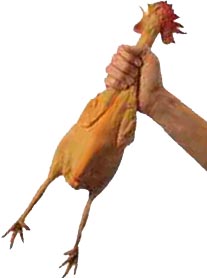
In real estate, they say that the value of a property is based on location, location, location. In speaking, you can divide your speech up into three separate parts: the opening, the body, and the closing. I firmly believe that the value of your speech is all about the opening, opening, opening.
Studies have shown that you have everyone’s attention when you are starting your speech. As more words tumble out of your mouth, you will lose more and more of your audience as they start to tap on their BlackBerrys, talk with the neighbor, or boot up their laptop. How can you connect with your audience right off the bat – and hold their attention for your entire speech? One word: humor.
Perhaps this is a good time for me to be very, very clear: I’m not talking about “classic jokes” – you know the type that begins “Two men walk into a bar and…”. Instead, the kind of humor that I’m refering to probably better called off-the-cuff humor. The most dangerous kind of humor!
Why take the risk of using dynamic humor? Simple, the payoffs are so great that it’s well worth the risk. The key is to identify where you are going to get your raw material for your dynamic humor. What you need to do is before your speech starts, you need to place yourself in your audience’s position. What are they feeling? Is the room hot or cold? Is there a distracting noise? What did the previous speaker say – did he say something shocking or controversial? Don’t forget food, if breakfast or break snacks have been served then how did that go?
By realizing what your audience has experienced, you can do one of three different things:
- Create an analogy
- Take things to an extreme
- Make a word association
Another source of great dynamic humor material is to take a look at the demographics of your audience: is it all women, all men, young, old, Northerners? Finally, take a careful look at the agenda for the event. If you’ve been asked to talk about next year’s business cases and the person who comes after you will be talking about budget cutbacks for next year, then you’ve got to comment on this!
How do you use humor in your speeches today? Do you prepare “classic jokes” to start your speeches off? Do you use dynamic humor in your speeches currently? Have you ever run into problems with creating humor off-the-cuff? Leave a comment and let me know what you are thinking.
